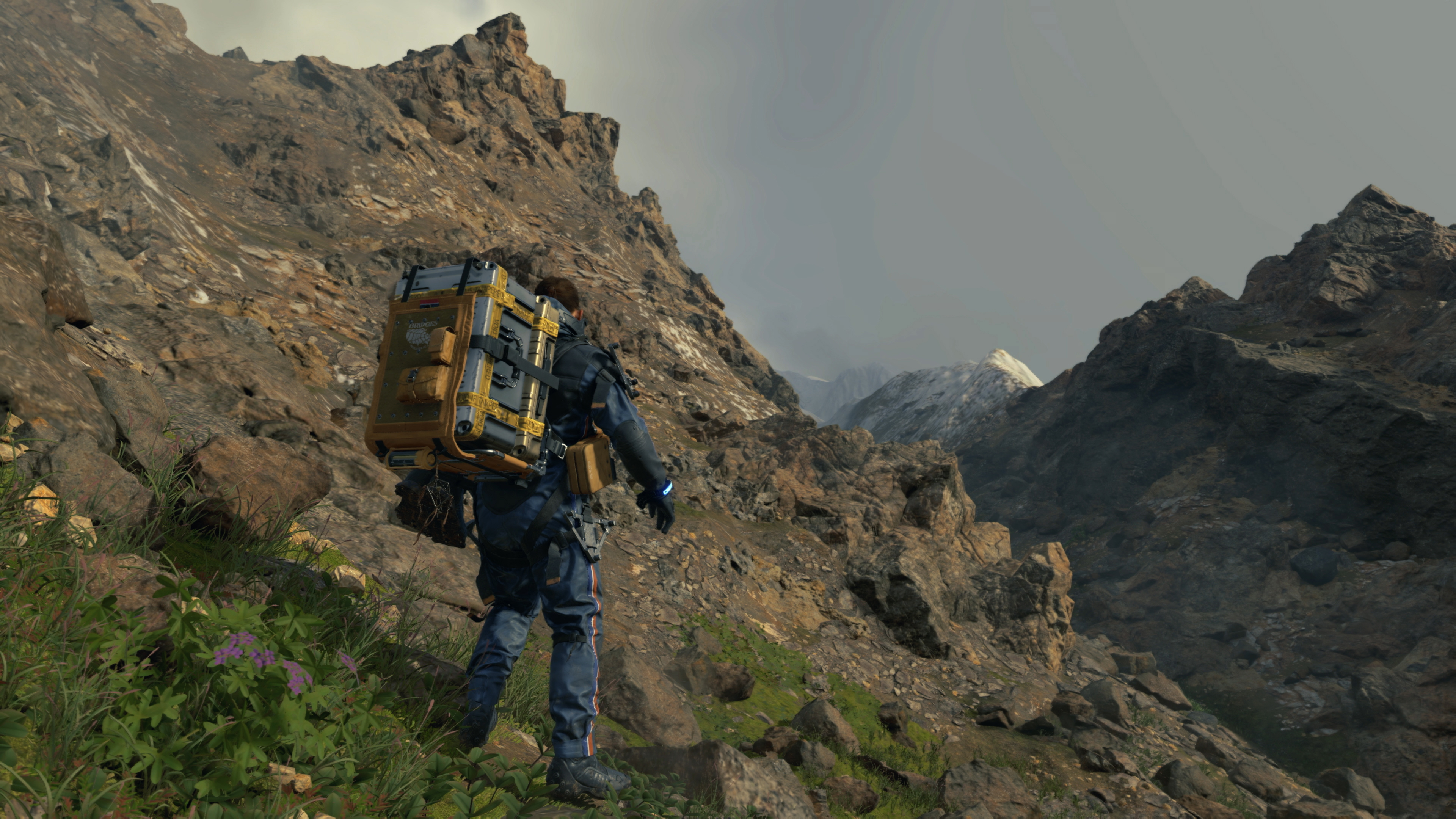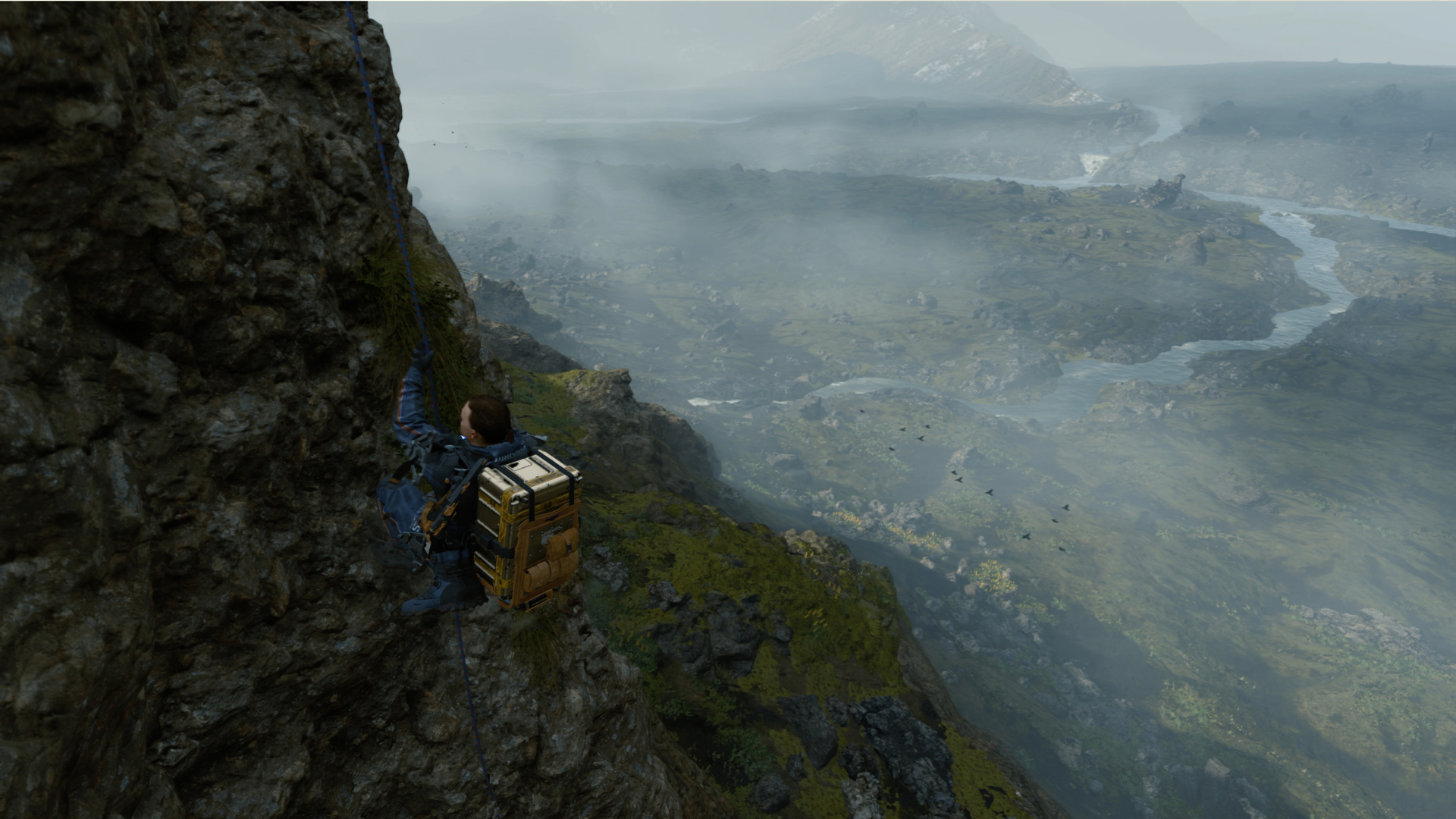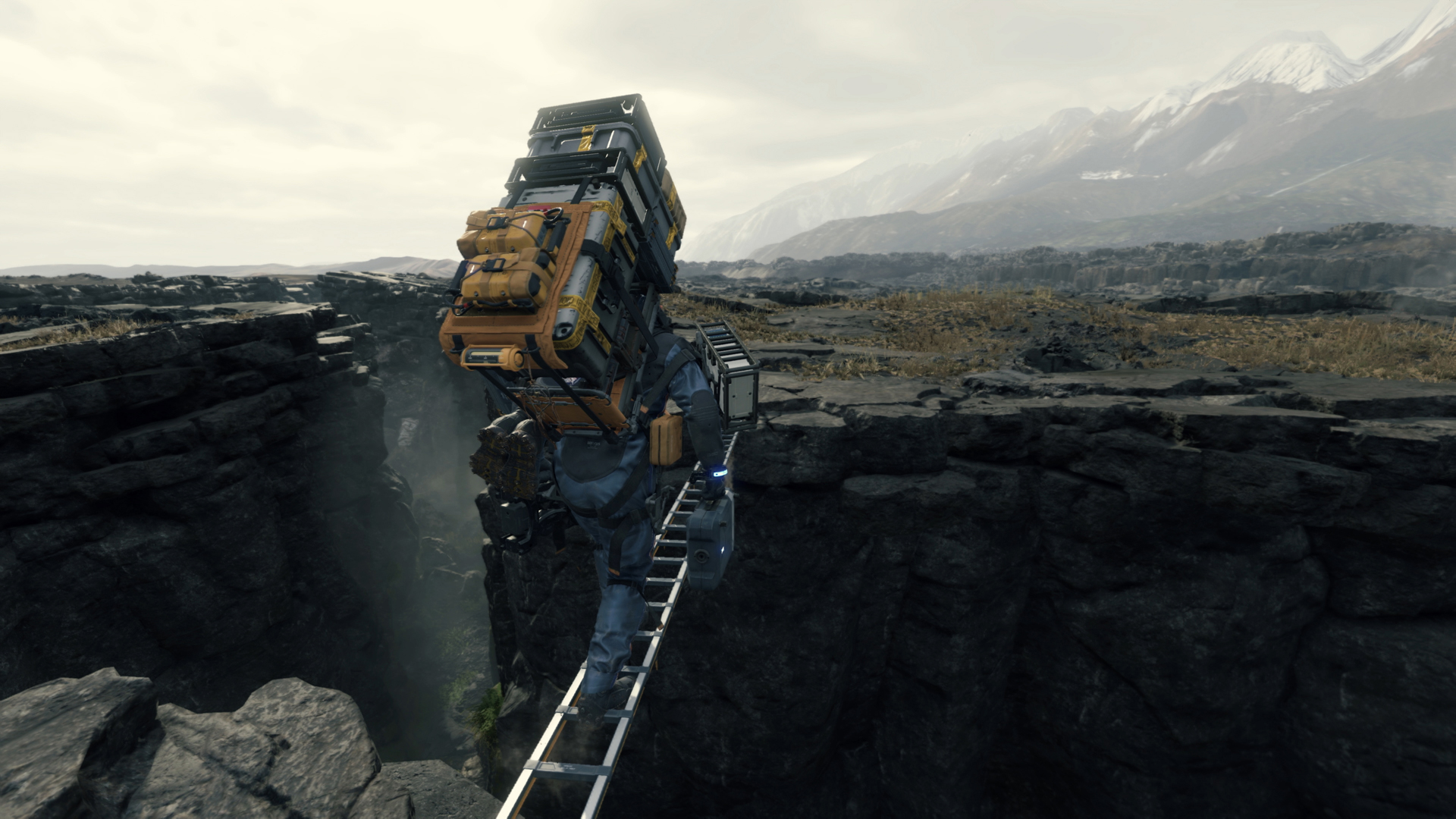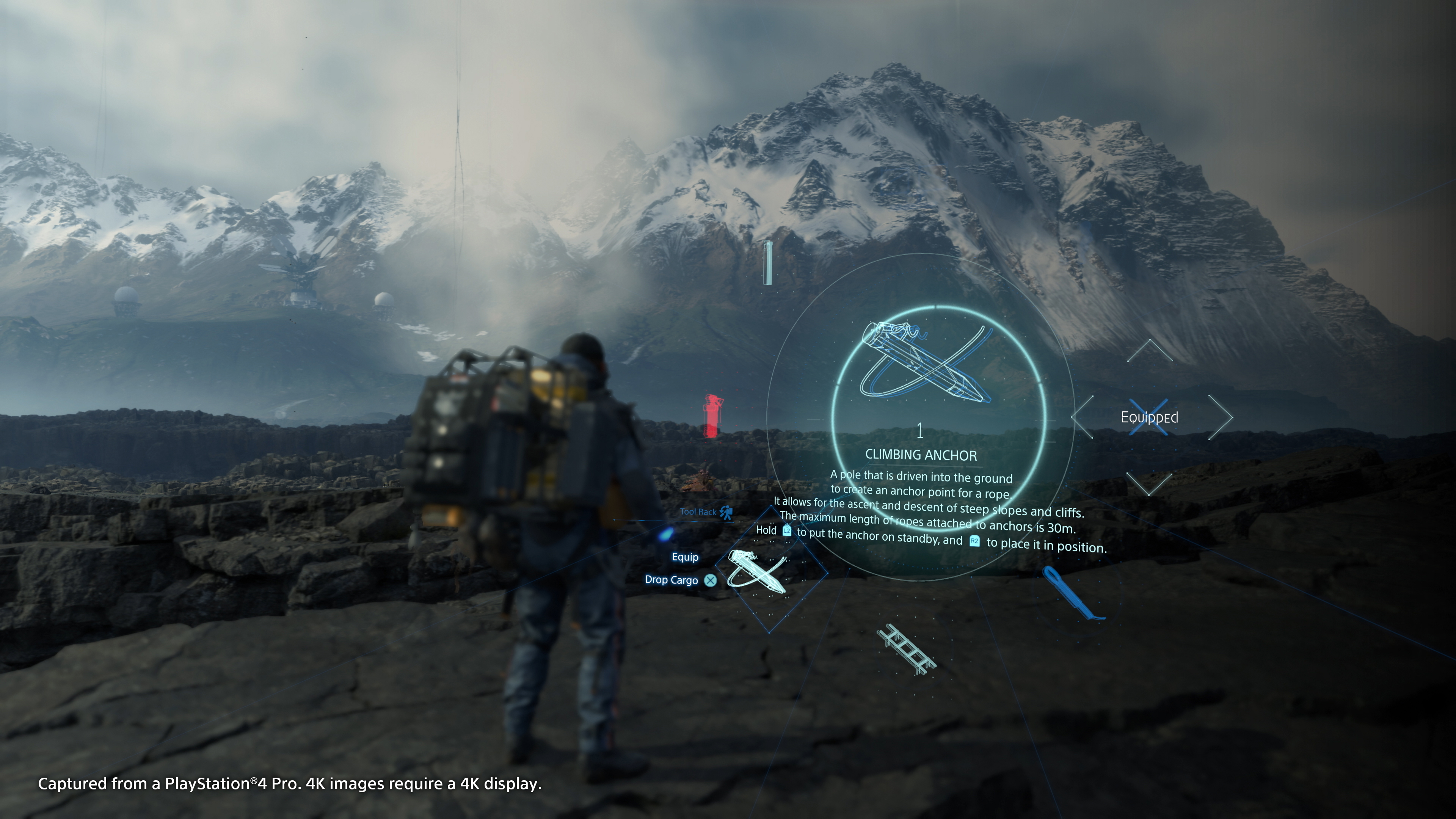
Death Stranding is hard work. It is repetitive and unyielding, resolute in its determination to slow you down. It succeeds when it asks little of you and stumbles on the rare occasion that it demands more – that you sprint, that you shoot, that you fight to survive. It's a game that works when your only discernible objective is to put one foot in front of the other for long stretches of time, soaking in the silence of a world slowly coming apart at the seams. If you're planning on diving into Death Stranding: Director's Cut on Xbox this weekend, here's my advice: Take your time, because to do anything else would be a waste of it.
Death Stranding: Director's Cut is now available on Xbox Series X. The game is also available on PC and PS5, and you can go back and read our Death Stranding review for the original GamesRadar+ verdict.
I'm well aware that "It's not the destination, it's the journey" resembles one of the most criminally overused cliches in modern history, but it's surprisingly apt in the case of Death Stranding. At its heart, the game is a walking simulator engineered on a scale unlike any other. Your stated objective is to deliver cargo between objective markers, but little of it bears any real significance. If there is any significance to be found, it will ultimately be drawn from what you may see of yourself reflected in the slow walk from east to west, across an auspiciously Scandinavian painting of North America.
Do you long for the next distraction?

I can't honestly say whether you're going to have a good time with Death Stranding. After investing no fewer than 100 hours into it on PS4 and PS5, having now sat in the aftermath of that adventure for a few years, I'm not even sure that I had a good time with Death Stranding. At times it felt like I was held hostage to its serenity and at others punished for abiding by its audacity.
What I will say is you shouldn't be afraid to chart your own path through it. Let the experience be your own, even if it flies in the face of conventional wisdom. Explore the landscape, not because there's anything of worth to be collected from the contours of the map, do it simply because you can. Ignore the directions the narrative pushes you towards, not because there's any divinity to be drawn from the side stories, but because there's always fun to be found in distractions of your own design. The world just is and you are just there, so why not take the time to breathe in the air?
Navigating the terrain is a puzzle you'll feel begrudgingly inclined to solve. It won't be one you'll enjoy pursuing all of the time, but there is a pervading sense of achievement measured in the miles you travel; the slow burn of accomplishment tempting you onward. The scale of the space is truly intimidating, awe-inspiringly so. Conquering it will keep you invested in the journey even as your common sense is screaming at you to walk away entirely. The world is a maw of steep inclines and snowy mountains, of rapid waters and rancid decay; the treachery of nature is the true villain of Death Stranding, even as the game contorts itself into strange shapes to present it as a secondary threat to that of the supernatural.

"There is a pervading sense of achievement measured in the miles you travel; the slow burn of accomplishment tempting you onward"
For a game so ostensibly focused on the end of the world – and on a cascade of otherworldly nuisances attempting to engineer it – Death Stranding can be surprisingly down to earth. To divine anything from your investment of time in this experience, you should treat the emergent moments of peace and quiet with care and attention. Whether Kojima Productions intended it this way or not is debatable, but Death Stranding rarely works when it has you fighting anything more than your sense of direction. Embrace that, it's fun to get lost in the wilderness.
Setting out into the wilds with little more than a ladder, a set of climbing anchors, and a fresh pair of boots on your back is the only way to engage with the world on its own terms, in a way that makes any sense, at least. To reach your destination with little more than your own two feet is to succeed; to stumble is to fail. Accept a delivery commission from a hologram, balance your cargo against your equipment requirements, and set off into the wilderness. Take your time; don't rush, let events unfold as they are meant to.
Weekly digests, tales from the communities you love, and more
Eventually, industrialisation will begin to intervene with the natural inclines of the landscape as bridges, ziplines, and highways begin to take shape on the horizon. The closer these come to you, the further you are getting from the best version of Death Stranding. You'll invest in this architecture against your better judgement to make your life a little easier, but you'll never forget the grift that got you there. The hours and hours of monotony, born out of climbing and walking, and the plotting of safe passages through the passive violence of nature's unassuming true form.
Death Stranding knows that many of us are petrified of silence. Its best moments come as we long for the next distraction, only to find that it rarely comes – you'll use your thoughts to fill the space. As you tease your avatar forward across open expanse, eventually it becomes second-nature, robotic. Your mind will begin to wander – let it. Embrace the quiet, and use it as a space for contemplation and reflection. I won't be so audacious to claim that Death Stranding offers moments of transcendence, but you'll walk away with as much as you are willing to invest.
A trip worth taking

My most memorable experience in Death Stranding had nothing to do with the BTs, the BBs, or any of the other science-fiction indulgences the game fumbles with, and everything to do with nothing at all. I was walking, I couldn't tell you why, what I was carrying, where I was going, or for how long – I don't remember, it isn't important. What I do remember, however, are the misty mountains and the cautious climb along the top of them. I remember balancing perilously on a ladder to cross a crevices, and the way a climbing rope warbled in the wind as a storm swept in around me – the sound my spare pair of boots made as they clanked against my cargo. I remember the treacherous tumble down the other side of the mountain. It felt like free-fall, until my feet planted to the ground. An open expanse in front of me; I started walking.
Eventually, it started to rain and I let my mind drift away. I began to think of how far I'd come and how far I had left to go, and of the trials I might need to overcome to reach the next destination – the game and my life had become inseparable at this stage as my mind danced around these thoughts; staring down the precipice of turning 30 is a trip all of its own. The opening bars of Low Roar's 'I'm Leaving' began to puncture Death Stranding's serene, silent soundscape, bringing me crashing back down to earth. I was lost, but I knew that figuring out where I needed to go next would be an adventure worth taking.
Once you're done with the latest from Kojima Productions, check out everything we know so far about Death Stranding 2.

Josh West is the Editor-in-Chief of GamesRadar+. He has over 15 years experience in online and print journalism, and holds a BA (Hons) in Journalism and Feature Writing. Prior to starting his current position, Josh has served as GR+'s Features Editor and Deputy Editor of games™ magazine, and has freelanced for numerous publications including 3D Artist, Edge magazine, iCreate, Metal Hammer, Play, Retro Gamer, and SFX. Additionally, he has appeared on the BBC and ITV to provide expert comment, written for Scholastic books, edited a book for Hachette, and worked as the Assistant Producer of the Future Games Show. In his spare time, Josh likes to play bass guitar and video games. Years ago, he was in a few movies and TV shows that you've definitely seen but will never be able to spot him in.


